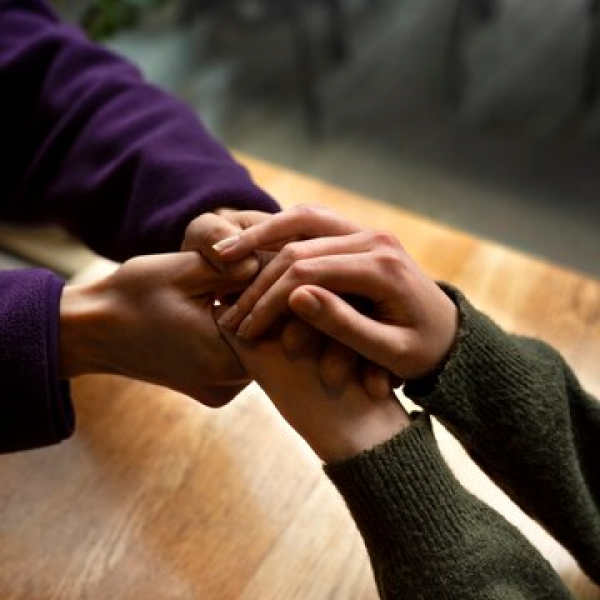
Harmonizing the Sacred and Creative: Tapping into Artistic Expression for Worship
Worship is an intricate composition, a harmonious blend of voice and silence, movement and stillness, tradition and innovation. At the crossroads where the Divine meets human expression, there is an unparalleled opportunity for the church to infuse its worship practices with creativity and artistry. In a culture that is continually shaped by visual and performing arts, tapping into artistic expression has the potential to engage worshippers in profound and transformative ways. This blog post examines the role of artistic expression in worship, highlighting its theological grounding, offering compelling data, and suggesting practical implementations.
Request a Demo
The Theological Basis for Arts in Worship
Artistic expression in worship is deeply rooted in the Judeo-Christian narrative. Scripture is replete with reverence for beauty and creativity as expressions of God’s own nature. From the skilled craftsmanship of Bezalel and Oholiab in Exodus to the poetic splendor of the Psalms, the biblical tradition affirms art as a medium for encountering the sacred.
Understanding the Impact of Arts on Worship
Research in the fields of psychology and neuroscience has shown the profound impact that engaging with the arts can have on individuals. A study published by the American Academy of Pediatrics found that school children who received music education showed improved neural processing. Translated into a worship context, artistic expression can impact cognition, emotion, and spiritual receptiveness, enriching the encounter with the Divine.
Current Trends in Artistic Worship
Contemporary worship has seen a rise in integrating various forms of art into its structure. Churches like Bethel Church in California and Hillsong Church internationally are recognized for their innovative use of music and visuals in worship services. Their approaches signal a growing recognition of the power and appeal of the arts in connecting with congregations.
Including Visual Arts in the Worship Space
The visual arts can provide a silent but potent commentary on themes of worship. Introducing artwork such as paintings, sculptures, or installations within the worship space can serve as focal points for meditation and reflection. Iconography in Eastern Orthodox churches offers historical precedence for this, where imagery serves as a window to the divine.

Expanding Worship through Music and Dance
Music and dance have long been vehicles for worship across cultures. Moving beyond traditional hymnody to include contemporary music styles and genres helps bridge cultural gaps and speaks to diverse congregants. Incorporating dance, as seen in liturgical dance ministries, imbues worship with a kinetic dynamism that invites the congregation to experience embodied praise.
Encouraging Creativity in Sermon Delivery
Even sermon delivery can benefit from artistic expression. The use of storytelling, poetry, and dramatic monologues can communicate biblical truths in memorable and impactful ways—techniques used by communicators like Rob Bell, who often incorporate narrative and creative delivery into his teaching.
Inviting Congregational Participation in the Creative Process
Collaborative artistic endeavors can be spiritually formative for the congregation. Interactive art projects, such as communal murals or collective poetry writing, offer congregants the opportunity to contribute to the creative process and can symbolize unity and collective worship.
Engaging Technology and Multimedia
The use of multimedia in worship, from on-screen visuals to creative lighting, is becoming increasingly common. These elements can set the tone, highlight transitions, and illustrate worship themes effectively. However, as highlighted by the Calvin Institute of Christian Worship, it is crucial that technology serves the worship purpose and not dominate or distract from the worship experience itself.
Cultivating Creative Leadership and Teams
Developing creative worship requires leadership that values and understands the arts. Establishing teams of artists and creatives can harness a broad array of talents within the church. Willow Creek Community Church provides a prime example with their Arts Ministry, designed to support and orchestrate multifaceted artistic involvement in their services.
Inclusive Artistic Expression Reflecting Diversity
Artistic worship should also reflect the diversity of the congregation and the universality of the body of Christ. Multilingual worship songs, indigenous art forms, and inclusion of different age groups in the artistic offerings of the church can affirm the cultural richness and inclusivity of God’s people.

Accessibility and Artistic Worship
When integrating arts into worship, it’s essential to consider accessibility, ensuring participants from all walks of life can engage and relate. This includes being mindful of varying levels of art appreciation among congregants and finding balance in the artistic offerings provided.
Fostering Artistic Community and Mentorship
Supporting the growth of artists within the church can include the provision of resources, spaces for creation and practice, and mentorship for developing talent. Churches like Ecclesia in Houston offer artists residencies, reflecting an investment in the nurturing of creative spiritual vocations.
Conclusion
Artistic expression has the power not only to decorate but to deepen worship, to not only enhance but to exalt our praise. When creatively curated and thoughtfully integrated into corporate worship, the arts can become conduits of God’s presence and revelation. It invites us into transformative encounters, drenched in beauty, and teeming with the vibrancy of the Creator’s palette. In the mosaic of worship, every brushstroke matters, every note counts, every movement speaks. As we harmonize the sacred with the creative, we extend an invitation to worshippers to experience God in full color and resonate with the psalmist’s exultation: “Let everything that has breath praise the Lord.” By embracing artistic expression, we celebrate the beauty of our Creator, the creativity imparted to humanity, and the profound ways the arts can elevate our shared worship—painting a picture of a church alive with creativity and awash in sacred wonder.


